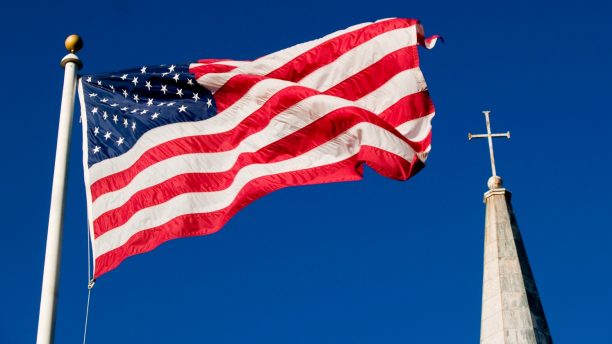Politics in the pulpit

Americans are in the process of electing a new president. While election day is officially November 5, early voting is already taking place in many states. It looks like there will be a large turnout as Americans decide whether former President Donald Trump and Vice President Kamala Harris will occupy the White House the next four years.
It seems like every election is dubbed “the most important election in our lifetime.” That is certainly being said about this election. Can the American economy survive another four years of a Democrat? Will Donald Trump put an end to democracy? Passions are running high.
It comes as no surprise, then, that people are looking for guidance in how to vote. One place many want to go to receive guidance is their place of worship. Others are convinced that they know the only Christian answer to how we should vote. Which raises the question, “should politics be brought into the pulpit?” My inbox this morning included a blog by Rev. Brian Keepers on this question– https://blog.reformedjournal.com/2024/10/28/politics-in-the-pulpit/ .
Tim Alberta’s excellent book, The Kingdom, the Power, and the Glory: American Evangelicals in an Age of Extremism (Harper Collins, 2023) deals extensively with this question.
My answer to this question is an emphatic “Yes!” There is no way to avoid it. The Christian message is inherently political. The first recorded creed Christian church was just three words: “Jesus is Lord” (I Corinthians 12:3). That is a political statement. If Jesus is Lord, then Caesar is not. Many early Christians were martyred for making this claim.
The question is not, “should we bring politics into the pulpit,” but “what politics should we bring into the pulpit?” Tim Alberta’s book is about the danger of bringing Republican politics into the pulpit. The danger is that the gospel is lost. But Republicans are not the only ones guilty of this. I’ve been to mainline churches where the sermon could have been delivered at the Democratic National Convention.
The politics that belong in the pulpit are, to quote John Howard Yoder, The Politics of Jesus. While I disagree with Yoder’s pacifism, he correctly points out that Jesus came to proclaim the good news of the kingdom of God. “Jesus went throughout Galilee, teaching in their synagogues, proclaiming the good news of the kingdom” (Matthew 4:23). “The kingdom of God has come near. Repent and believe the good news!” (Mark 1:15). Jesus’ message was a political one. It was about a universal kingdom (a political term) in which God is the King. His message was not primarily about how to insure we get to heaven in the afterlife, but how to live under God’s rule and authority in this one.
The American national conversation is binary. Democratic or Republican. CNN or FOX news. The result is a divided nation, with each side hostile to the other. The Christian message offers a third way, the Jesus way. You can find this third way described in the Beatitudes (Matthew 5:3-12). The kingdom of heaven belongs not to the rich and powerful, but to those who are poor in spirit. Those who mourn are blessed. The meek, not the mighty, are the ones who will inherit the earth. The hungry are fed. Peacemakers are the children of God. Those who are persecuted are blessed, because to them belongs the kingdom of heaven. This makes no sense. Imagine a Republican or Democratic platform based on the beatitudes! I doubt if they would win the election.
But this is the Jesus way. It’s a way forward that will lead to human flourishing for all—urban, suburban, rural Americans; white, black, Latino or Asian; those on either side of the southern border. The Old Testament uses the word shalom, which we translate with the word “peace.” Peace will only come when God is acknowledged as the Sovereign ruler of all, and God’s ways are followed.
Of course, we will not experience this shalom on November 6, or whenever we get the results of the election. Many are worried about civil unrest. Shalom will only fully come when Jesus returns. In the meantime, as citizens of God’s kingdom and citizens of this temporal nation, we do whatever we can to advance shalom. That includes being involved in the political process—not primarily as a Democrat or Republican, but as a follower of Jesus, as a Christian. It means prayerfully considering who would best serve as the next president. We will not all make the same decision on this question. There is no single answer on how a Christian should vote that your pastor can give you from the pulpit next Sunday. There are many things to consider, from abortion to healthcare to world conflict. But I do hope that he or she will include the election in the congregational prayer.
One final thing: after you have carefully and prayerfully considered the issues and the candidates, make sure you get out there and vote!

